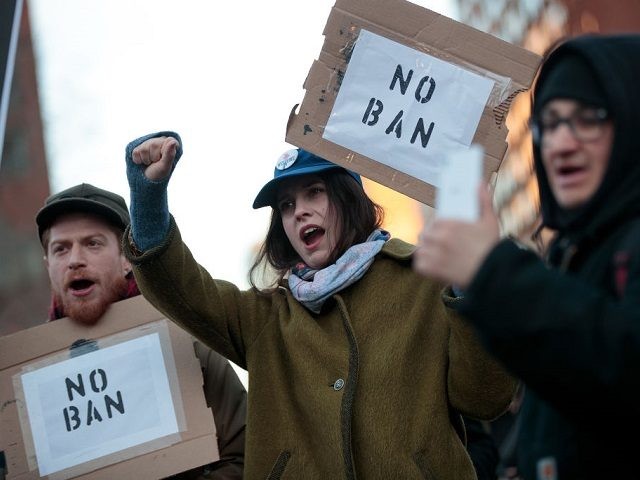WASHINGTON—The Supreme Court on Monday removed the travel ban executive order case from its schedule for oral arguments, and issued an order for short legal briefs on whether the case is now moot because of President Donald Trump’s new vetting process.
The Supreme Court was scheduled to hear oral arguments on October 10 in Trump v. IRAP and Trump v. Hawaii, the two challenges to Executive Order 13780, in which the U.S. Courts of Appeals for the Fourth Circuit and Ninth Circuit had struck down the president’s temporary immigration restrictions from six terror-prone nations. The Fourth and Ninth Circuits are currently the most liberal federal appeals courts in the nation.
Executive Order 13780 included a 90-day restriction on immigrants arriving from those nations to provide the U.S. Department of Homeland Security enough time to develop “extreme vetting” procedures to ensure that the United States was not letting terrorists slip into this country.
On June 26, the Supreme Court had partially stayed the decisions of the Fourth and Ninth Circuits, allowing most of the travel ban to go into effect.
Now that 90-day window has run its course. As it was ending, President Trump issued a presidential proclamation on September 24, in which he set forth the new extreme vetting procedures that the 90-day window was designed to make room for.
The next day, September 25, the Supreme Court issued an order, removing Trump v. IRAP from its oral argument calendar on October 10, and further ordering the parties to file 10-page legal briefs over the next few days about whether the case is now moot.
Article III of the Constitution defines and strictly limits the jurisdiction of all federal courts, including the Supreme Court. A court has no power to rule on a case that is moot, meaning that it is no longer a live controversy.
By issuing this order, the Court wants to decide whether it is the new presidential proclamation that carries the force of law, and that the challenged provisions of Executive Order 13780 have now expired, such that no court can rule on their legality.
The short supplemental briefs are due at the Court on October 5.
The cases are Trump v. IRAP, No. 16-1436, and Trump v. Hawaii, No. 16-1540.
Ken Klukowski is senior legal editor for Breitbart News. Follow him on Twitter @kenklukowski

COMMENTS
Please let us know if you're having issues with commenting.